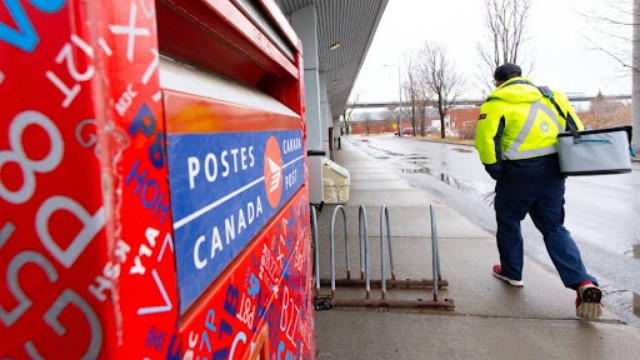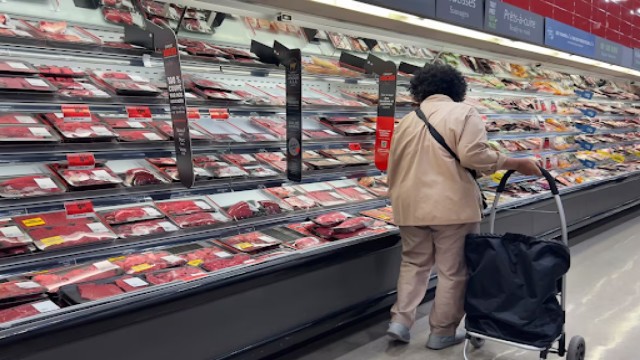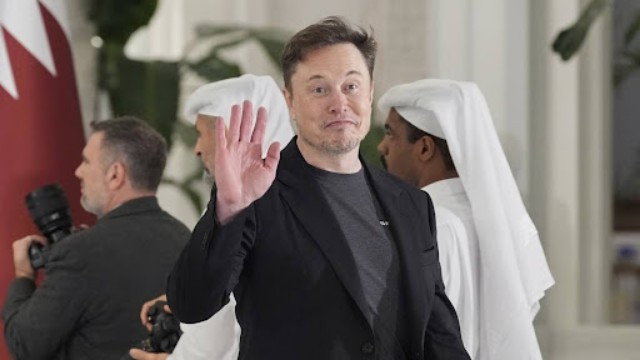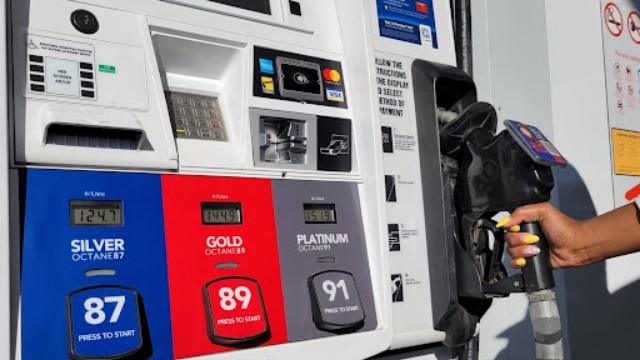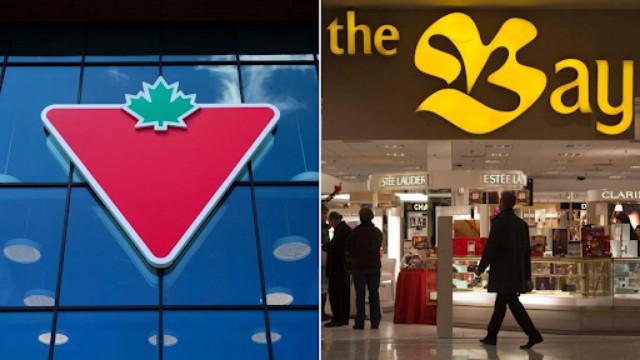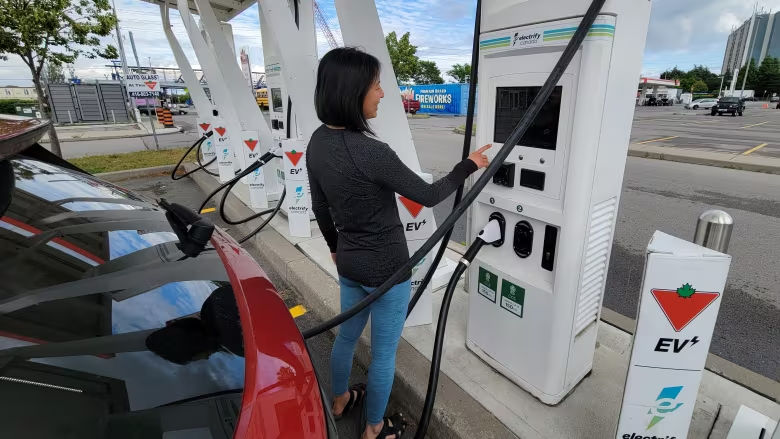
A woman checks the status of the charge for her car at a charging station at a Canadian Tire in Scarborough, Ont., last June. Sales of EVs are still growing, but the pace has cooled. (Doug Ives/The Canadian Press)
Several major automakers are adjusting their plans to expand the production of electric vehicles (EVs) due to a slowdown in sales growth that has deviated from previous forecasts. Despite this, the market for electric vehicles continues to expand gradually, with more models entering the market each year.
This fluctuation in EV sales has led to a mixture of both optimism and pessimism surrounding the future of the EV sector and the transition away from traditional gasoline and diesel vehicles. The status of the EV market has become a central topic at this year's CERAWeek by S&P Global in Houston, one of the world's largest energy summits. The move towards vehicle electrification could potentially reduce the global demand for oil while presenting significant opportunities for power producers.
Chevron CEO Mike Wirth acknowledged the potential of EVs as a promising technological advancement, but also highlighted that they may not be suitable for all customers, reflecting current consumer behavior and preferences.
Automakers are adjusting their strategies in response to shifting customer preferences. Nissan and Stellantis, for instance, had previously committed to achieving full electrification of their fleets in Europe by 2030. However, dealerships have recently resorted to price reductions to stimulate EV sales, alongside revising their EV targets and even canceling certain plans for co-developing new EV models.
According to Amy Stanley, an executive at Toyota North America, while EV sales continue to rise, the rate of growth has slowed down. However, the market has been bolstered by the introduction of numerous new electric models, particularly SUVs, which are increasingly popular in markets like Canada and the United States.
One of the significant challenges facing the EV market is the availability and reliability of charging infrastructure. While customers were previously concerned about the limited range of EVs, the focus has now shifted to charging, encompassing both the availability of public charging stations and the ease of use. The concept of "uptime," referring to the reliability of EV chargers, has emerged as a critical consideration within the industry.
There is growing discussion, particularly in the United States, about the need for regulations to ensure the reliability of charging networks, making them comparable to traditional gasoline stations in terms of customer expectations.
Elaine Buckberg, a senior fellow at Harvard University's Salata Institute for Climate and Sustainability, emphasized the need for an organized directory providing information on charging station locations and their operational status. She highlighted that only a third of the charging stations along major highways currently offer such data in a centralized format.
Ford reported an 80% increase in EV sales last year, with expectations of further growth this year. According to Deane Millison, a senior director at Ford, the customer base for EVs is evolving, with an initial wave of early adopters being followed by a broader demographic. While demand for EVs is rising, Millison stressed the importance of understanding customer preferences and providing a range of vehicle options to accommodate different lifestyles.
Despite the growing popularity of EVs, Millison emphasized that traditional gas-powered vehicles will continue to be offered alongside plug-in hybrids and EVs for the foreseeable future to cater to diverse customer preferences.




